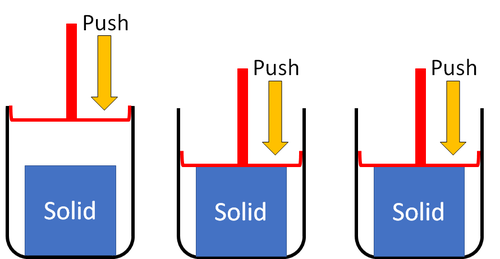Difference between revisions of "Solid"
| Line 1: | Line 1: | ||
| − | A [[State of Matter|state of matter]] | + | ==Key Stage 2== |
| + | ===Meaning=== | ||
| + | A '''solid''' is a [[State of Matter|state of matter]] that holds its shape and cannot be squashed into a smaller space. | ||
{| class="wikitable" | {| class="wikitable" | ||
| Line 25: | Line 27: | ||
*Glass | *Glass | ||
*Ice | *Ice | ||
| + | |||
| + | ==Key Stage 3== | ||
| + | ===Meaning=== | ||
| + | A [[State of Matter|state of matter]] where all the [[Particle|particles]] are touching and in a regular arrangement. | ||
Revision as of 19:51, 18 August 2018
Contents
Key Stage 2
Meaning
A solid is a state of matter that holds its shape and cannot be squashed into a smaller space.
|
| Solids cannot be squashed into a smaller size. You can change their shape by squashing, but their size stays the same. |
Examples of solid materials:
- Brick
- Wood
- Plastic
- Glass
- Ice
Key Stage 3
Meaning
A state of matter where all the particles are touching and in a regular arrangement.

